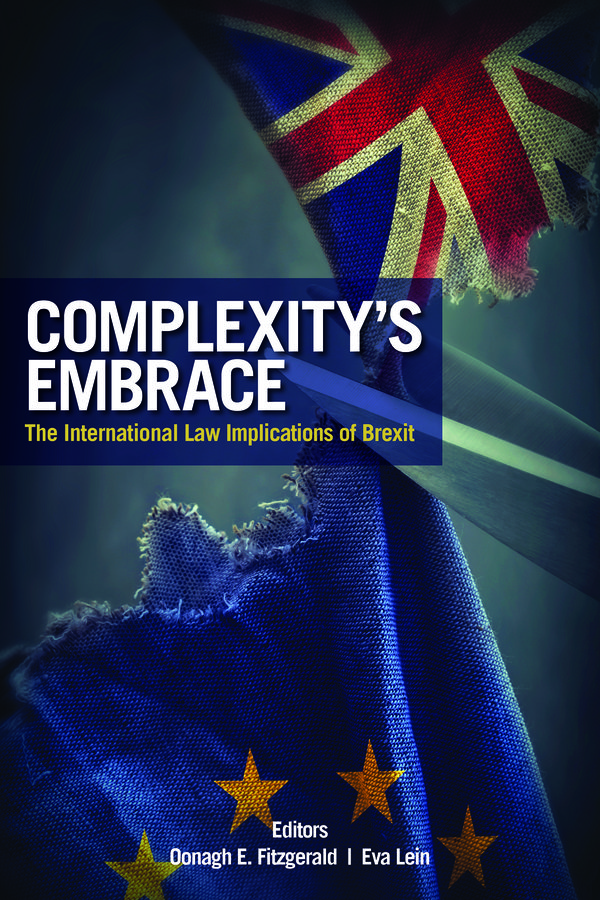The United Kingdom’s June 2016 Brexit vote sent shockwaves throughout the European Union and the world. Since the start of Brexit negotiations, the complexity and cost of extracting the United Kingdom from the European Union and its regulatory and governance structures have become increasingly evident. The United Kingdom has to disentangle itself from the many ties that bind it to the European Union; negotiate mutually acceptable replacement agreements; prepare satisfactory domestic replacement law, regulation and administrative institutions; and get ready to negotiate new treaties with other states once autonomy is achieved.
Complexity’s Embrace: The International Law Implications of Brexit looks into the deep currents of legal and governance change that will result from the United Kingdom’s departure. The book’s contributors include international law experts and academics from the United Kingdom, Europe and North America who present the challenges of Brexit from different viewpoints and across a wide range of areas. These areas include trade, financial services, cross-border insolvency, intellectual property rights, the environment and human rights.
The book reveals details of what Brexit means for international and domestic laws and regulations that shape daily life and suggests possible ways forward. UK negotiators face the challenge of satisfying Leave voters’ desire for greater British autonomy and control while avoiding economic and social upheaval. As the authors of Complexity’s Embrace peel back the layers of this onion and negotiators on both sides try to find an acceptable compromise, the question burns: will the two parties be able to achieve a mutually satisfactory separation agreement?



